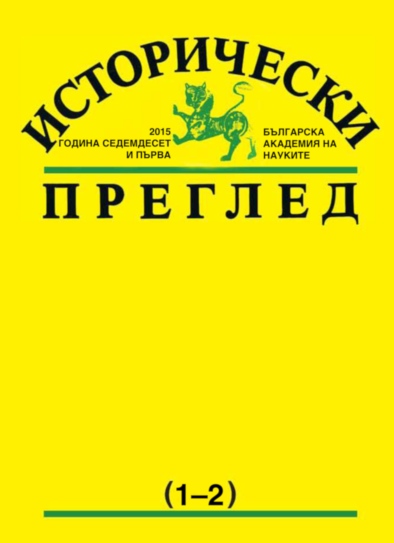Англиканската църква, Източното православие и България (XIX – средата на ХХ в.) Част втора.
Anglican Church, Eastern Orthodoxy and Bulgaria (Nineteenth – Mid-Twentieth Century) Part Two.
Author(s): Zhivko LefterovSubject(s): Christian Theology and Religion, History, History of Church(es), Diplomatic history, Political history, Modern Age, Recent History (1900 till today), Special Historiographies:, Theology and Religion, 19th Century, Pre-WW I & WW I (1900 -1919), Interwar Period (1920 - 1939), WW II and following years (1940 - 1949), Period(s) of Nation Building, Cold-War History, Eastern Orthodoxy, Other Christian Denominations
Published by: Институт за исторически изследвания - Българска академия на науките
Keywords: Eastern Orthodoxy;Anglican Church;Bulgarian Orthodox church;Ecumenical Patriarchate;ecumenism;Vatican;Cold War;
Summary/Abstract: The first contacts of the Anglican Church with the Eastern Orthodoxy date from the early 17th century and launch a process of rapprochement, which is well known in the international historiography. Over the centuries, until today it has a different intensity depending on the degree of theological negotiations and political situation. The study traces the impact of this process among the Bulgarian Orthodox community and among Bulgarian society, how Bulgarians form their perceptions of the Anglican Church and to what extent the subject goes out of theological dialogue and is publicly known and discussed, and hence politically exploited. The author traces the attitudes and positions which the representatives of the Anglican Church occupy regarding major events related to Bulgaria, and Bulgarian Orthodox Church in the 19th and early 20th century; how individual public officials try to see farther than purely theological dialogue and to use sporadically, albeit unsuccessfully, the benevolence of the Anglican Church to Eastern Orthodoxy in the context of the national tasks that need to be resolved. During the Second World War and the Cold War Anglican-Orthodox rapprochement becomes part of big politics and is influenced by Stalin‘s religious policy. Initially, Stalin relies on the Anglican Church for expansion of Orthodox influence in international organizations, but later he begins to consider it as a rival and opponent. Consequently, the dialogue is restored only after Stalin‘s death, but on the part of Orthodox churches of the socialist camp and particularly Bulgaria it will be subject to the religious policy of „opening“ led by communist parties, which aims to use the churches in the big propaganda war between Orient and Occident about the existing religious freedom behind the Iron Curtain.
Journal: Исторически преглед
- Issue Year: 2015
- Issue No: 1-2
- Page Range: 246-278
- Page Count: 33
- Language: Bulgarian
- Content File-PDF

